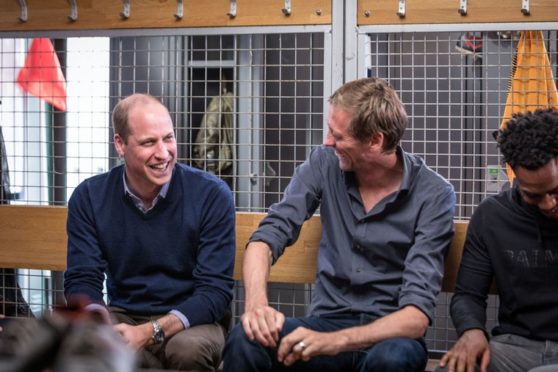
The Duke of Cambridge has described how his experiences as an air ambulance pilot left him feeling death was “just around the door” everywhere he went.
William’s frank admission was made during a forthcoming documentary about mental health, in which he said dealing every day with families “having the worst news they could ever possibly have” had left him with a “very depressing, very negative feeling”.
He also spoke candidly about the death of his mother, Diana, Princess of Wales, and said there was “pain like no other pain” following his bereavement.
William said the characteristic “British stiff upper lip thing” had its place when times were hard, but people also needed “to relax a little bit and be able to talk about our emotions because we’re not robots”.
The duke’s comments were made in the BBC One documentary A Royal Team Talk, and he said that before his air ambulance experiences took their toll, and became a “real problem”, he spoke to someone.
In the programme William teamed up with Peter Crouch, Thierry Henry, Danny Rose, Jermaine Jenas and England manager Gareth Southgate as they shared issues they have struggled with in their careers in a discussion about the importance of mental fitness.
The conversation was filmed earlier this month at the grounds of Cambridge United Football Club, which is pioneering what it means to be a mentally healthy football club.
The duke said he found the emotional side of being an East Anglian Air Ambulance pilot “very difficult”.
He said he had come from the military where feelings were put to one side, and he had seen men struggle to deal with the experience of serving in Iraq and Afghanistan once they had left the forces.
William added: “To then go in to the ambulance world, which is a much more open and actually, in some cases, very raw, emotional day-to-day stuff, where you’re dealing with families who are having the worst news they could ever possibly have on a day-to-day basis, it leaves you with a very depressing, very negative feeling, where you think death is just around the door everywhere I go.
“And that’s quite a burden to carry and feel.
“And I felt that with a few jobs that I did, where there were particular personal resonations with the families that I was dealing with.
“That raw emotion, I just thought listen, I can’t – I could feel it brewing up inside me and I could feel it was going to take its toll and be a real problem. I had to speak about it.”
William said the death of his mother, who died in 1997 in a Paris car crash, meant he could relate to others who had suffered a bereavement.
He said: “I’ve thought about this a lot, and I’m trying to understand why I feel like I do, but I think when you are bereaved at a very young age, any time really, but particularly at a young age, I can resonate closely to that, you feel pain like no other pain.
“And you know that in your life it’s going to be very difficult to come across something that’s going to be even worse pain than that.
“But it also brings you so close to all those other people out there who have been bereaved.”
In recent years William and his brother the Duke of Sussex have talked extensively about how they dealt with their mother’s death, as they promoted their Heads Together mental health campaign, which encouraged people to talk about their problems or listen to others facing issues.
Talking about national traits, the duke added: “The British stiff upper lip thing, that’s great and we need to have that occasionally when times are really hard. There has to be a moment for that.
“But otherwise we’ve got to relax a little bit and be able to talk about our emotions because we’re not robots.”
A Royal Team Talk: Tackling Mental Health is part of the BBC’s wider mental health season, and is screened on BBC One on Sunday at 10.30pm.

Enjoy the convenience of having The Sunday Post delivered as a digital ePaper straight to your smartphone, tablet or computer.
Subscribe for only £5.49 a month and enjoy all the benefits of the printed paper as a digital replica.
Subscribe